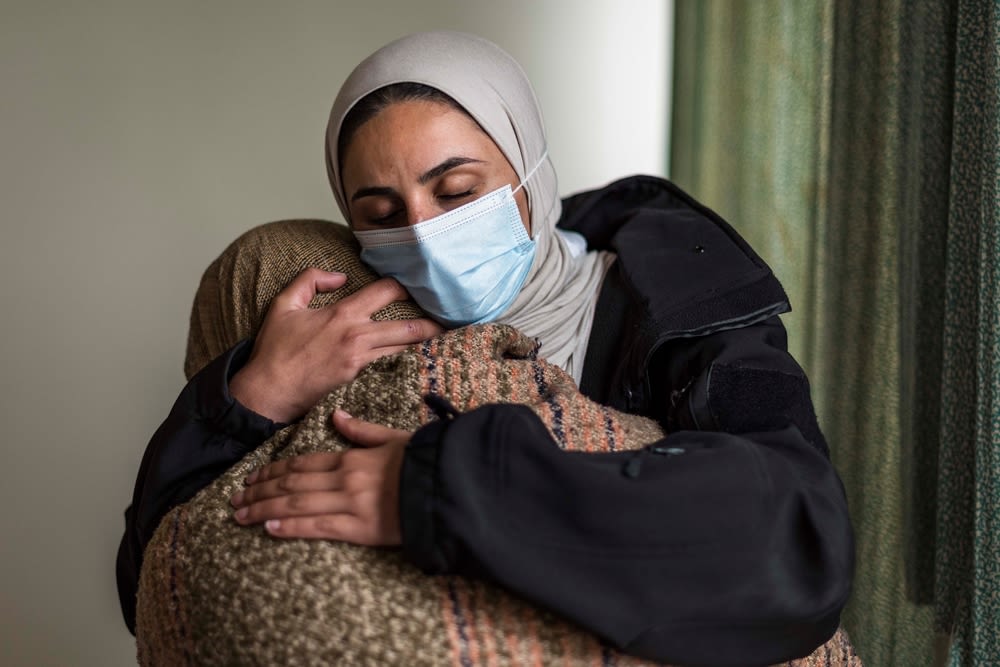In pictures: Palestinians living under occupation

For over five decades, ever since Israel occupied the Palestinian Territories of the West Bank and Gaza Strip, Palestinian people have experienced continued and repeated traumas.
Humanitarian needs across the Occupied Palestinian Territories (OPT) are mounting due to widespread unemployment, economic decline and the recent impact of the COVID-19 pandemic.
In the West Bank, systematic repression and discrimination by Israeli authorities against Palestinians continue, with home demolitions, forced relocations and violence by Israeli settlers on the rise.
For many people, such experiences have long-term consequences, particularly when they come on top of pre-existing trauma from previous episodes of violence and life under occupation and blockade.
Médecins Sans Frontières/Doctors Without Borders (MSF) provides mental health services to men, women and children with moderate or severe psychological issues and psychiatric disorders in the West Bank and Gaza. MSF’s services include a response to mental health issues which are a specific result of violence in the West Bank.
Photographer Alfredo Cáliz travelled across the occupied West Bank to document the toll of living under occupation. His photos were originally published in Spanish newspaper El País Semanal.

Raghda received treatment from MSF after being diagnosed with post-traumatic stress disorder. In 2013, soon after her house in H2 – an area of Hebron city under Israeli military control – had been completed, she received a demolition order from the Israeli army for alleged illegal construction. She appealed but the order remains suspended. One year later, her son was arrested and spent two weeks in jail after being involved in a scuffle with a teenage settler. Raghda says they were unable to visit their son while he was locked up. Eventually, she recalls, the boy was released after being given bail and being warned not to go near settlers or the military. Throughout his adolescence, Raghda tried to keep her son off the streets to protect him. In 2019, Raghda realised she needed help. “Every mother in Palestine lives in difficult conditions and we have become strong, but sometimes you reach the limit and you need help,” she says. “Our mental health is the foundation for us to continue to be strong for those around us.”
On 1 January 2021, Haroon Abu Aram survived being shot in the neck by an Israeli soldier. The bullet damaged his spinal cord and he was left quadriplegic. Haroon and his family live in Masafer Yatta, in the south of Hebron – a traditional Bedouin desert area that is part of Area C, the 60 per cent of West Bank territory that came under exclusive Israeli control with the Oslo Accords of 1993, and where Palestinians are at risk of being evicted from their villages. Haroon was hospitalised first in Hebron, then in Tel Aviv. A kibbutz association helped him with medical expenses. Farisah, his mother, receives psychological support at MSF’s clinic in Hebron. "I have to keep myself whole,” she says. “If I weaken, my family weakens, and it is my duty to take care of Haroon."
When Shadi was in prison, he was tortured. In 2019, depressed and angry, he sought mental health support from MSF. "In this land, it's too hard to love and too easy to hate," he says. "I didn't feel integrated into society, I was always anxious, I didn't want to go on living," he says. After 18 months of psychological support, Shadi’s mental health has improved. He has also recently become a father. "I have pushed the tormenting memories into a corner," he says.
Randa Abu Sifan lives in the Israeli-controlled H2 area of the West Bank. "We live in fear and it affects us all psychologically," she says. Randa reports repeated attacks by radical settlers. One of her daughters is receiving treatment from MSF for anxiety.
MSF provides mental health services to men, women and children with moderate or severe psychological issues and psychiatric disorders in the West Bank and Gaza. MSF’s services include a response to mental health issues which are a specific result of violence in the West Bank.
A passageway and archway in Hebron Old City, in the H2 area, controlled by the Israeli military. Palestinians living in H2 endure routine violence, nightly military excursions into their homes, harassment, delays at checkpoints and various forms of degrading treatment. Restrictions on travel by car or on foot put medical care out of reach for many residents, particularly the elderly, people with disabilities and those in need of emergency care. Some 34,000 Palestinians living in H2 struggle to access even basic medical care.





